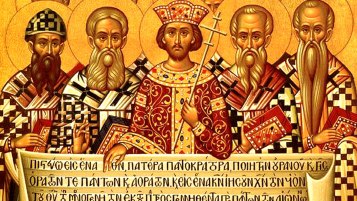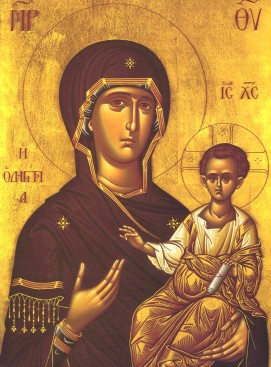A moment of vulnerability:
Over the past 15 years, I have re-engaged with my faith in a fresh way. It started with me wrestling with what I believed generally about God and then led to me working out what I believed about the Bible. At a certain point, I landed a more orthodox perspective of non-negotiables about Christianity.
I decided that I would responsibly allow myself to be open to any perspective theologically that is Biblically grounded, has been held by the church in points throughout history, and not allow myself to hold a perspective just because a certain denominational tribe or the current majority holds it. In some of these non-essential doctrinal stances, I have made a shift because of Biblical conviction. It has been lonely at times.
It has been hard having people that I love think that I am in danger of being a heretic (which I am not). Some of my friends and past ministry partners have warned people about my teachings and writings. There is fear and ignorance that causes all of us (myself included) to be unwilling to flex or be charitable to another Biblical interpretation than our own.
I have a huge concern right now with the theology watchdog mentality on social media. It seems like the word “heresy” is thrown around a lot by the watchdog mentality tribe.
A week ago I asked the question on social media, “What is heresy?” Here are a few of the responses:
- Anything opposite of God’s truth
- Incorrect belief
- Anything that hates who God loves
- Calling God a liar
- Heresy is anything that ruins the gospel’s story
These are just a few of the answers that I received. This tells us that there are different definitions of what heresy is. It seems that anyone can call someone a “heretic” according to their own definition.
How do we understand true heresy?
The New Testament was not canonized for about 300-400 years after Jesus. Many of the heresies that were dealt with in the early church were dealt with without being able to go to a bookshelf and open a compiled book of 66 books with chapters and verses that we call “the Bible”. This is part of the reason for some of the heresies being present, but they were still able to root out heresies and define orthodox doctrine.
How?
They had copies of authoritative texts that later made their way into the New Testament. Each church over time had leaders that either approved or threw out certain texts. By 170 A.D., most churches agreed on the list of these texts. At this time they also had the “Apostles’ Creed”. They were wrestling with issues using the authoritative texts, but to them, if a belief system clearly went against the “Apostles’ Creed”, it was thrown out as Heresy.
Up to the fourth century of the church, before they had the New Testament as final canon, they had two clarifying rubrics or tools:
- The Authoritative list of texts and works of the church that eventually became the New Testament.
- The Apostles Creed was important for them in defining what essential doctrine was from the authoritative list of texts.
In 313 A.D. Christianity became a legal religion (and shortly after it being the official religion). There was a leader by the name of Arius who taught that Jesus was not eternally divine and was created by God. In 325 A.D. The Council of Nicaea came together to work this out.

Out of this Council came the essential “Doctrine of the Trinity” and the “Nicene Creed” that it is stated in. The Council met again in 381 A.D. to finalize the Creed. This put Arius and his followers in the camp of heresy.
In 397 A.D. the church got together for the “Council of Carthage” where most of the rest of the New Testament canon was decide from the authoritative texts. Now the Old and New Testament were official as the Christian Bible.

At this point the church now had a way to determine heresy by the authority of scripture. Heresy was any belief that went against the essential Biblical doctrines defined in:
- The Apostles Creed
- The Nicene Creed
If we look at all of the heresies in that time period, they all have one thing in common. From Gnosticism to Arianism, they all taught something inaccurate about the relationship of the divinity and/or humanity of the person of Jesus Christ.
According to the early church, heresy wasn’t just a little disagreement on a biblical interpretation that a social media keyboard warrior called someone out for. Heresy was anything that taught something about the divinity and/or humanity of Jesus that was false. We have clarity on this because of the Creeds, and because especially the Nicene Creed was developed while wrestling with heresy using the authoritative texts. Therefore, heresy can be boiled down into anything that goes against the Biblical understanding that is made known in the creeds. The creeds are important, because they tell us what is most biblically important and define those essential doctrines. Anything that is outside of what is most important and essential in doctrine (defined in the creeds) is to be rejected!
This is why in some ancient liturgical churches (Orthodox, some Catholic, and some Anglo-Catholic) there is an icon on the wall at the entrance of the sanctuary of Jesus and Mary. It is to remind people, as they enter the worship space, that traditionally heresy is anything that is taught falsely about what was worked out at Nicaea (in particular the divinity and/or humanity of Jesus).

Denominational confessions and statements (Westminster confess, Belgic confession, Baptist Confession, Statement of Fundamental Truths, Chicago Statement of Inerrancy, etc.) are often important for bringing clarity to a stance of a denomination, but to not align with a certain confession or statement doesn’t necessarily make you a heretic. Creeds are meant to unite over essential doctrines, and all Biblical Christian denominations, no matter their confessions and non-essential disagreements, will agree with the doctrines stated in the creeds.
Many churches don’t teach or recite the creeds. This gives churches, church leaders, and denominations up to determine on their own what they feel is most doctrinally important, what interpretations are correct, and the ability to vilify (and even call out as heresy) anything that does not align with their particular perspective.
There is far less true heresy in the church than people who are social media theology watch dogs think. May we learn to only split hairs on what is Biblically essential as define by the creeds that unite us!